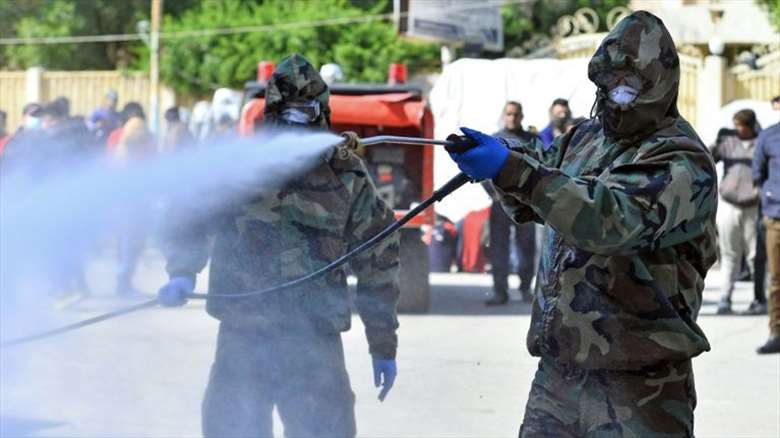Iraq extends coronavirus curfew as cases continue to rise

ERBIL (Kurdistan 24) – On Thursday, Iraq’s Ministry of Health and Environment announced the confirmation of 36 new cases of coronavirus and 7 deaths in Iraq, while authorities extended the countrywide curfew aimed at curbing the spread of the disease until April 11.
A ministry statement said that the new cases include nine in both Baghdad and Basra provinces, seven in Karbala, five in Wasit, and one in Kirkuk and Dhi Qar. It also mentioned seven new deaths due to the virus and 16 infected Iraqis but had made recoveries in the last 24 hours.
According to the ministry, there have been a total of 382 confirmed cases in Iraq, 36 of them fatal and 105 in which the patients have recovered.
A statement by the office of the prime minister explained that the Council of Ministers made the decision to extend the curfew that was set to expire on Saturday.
The lockdown includes the suspension of all schools and universities, religious services, and other public gatherings and will be reassessed as the new April 11 expiration date approaches to assess whether an additional extension will be mandated.
Also on Thursday, the Kurdistan Regional Government’s (KRG) Ministry of Health announced three new cases of the coronavirus in the Erbil province.
Read More: Erbil announces three new cases of COVID-19
The ministry said in a statement that all three, two males and a female, are in their early thirties and live in Erbil city. They are reportedly close relatives of another coronavirus patient who tested positive in Erbil on Wednesday.
Though national figures include the Kurdistan Region, KRG health officials typically make their daily coronavirus announcements at a later time than their counterparts in Baghdad, causing the region's numbers to be added to the federal Health Ministry's figures on the following day.
In addition to anti-coronavirus regulations declared by the federal government in Baghdad, the Kurdistan Region has enacted multiple strict precautionary measures as part of attempts to block the spread of the disease, including closing schools, declaring an extended public holiday for government employees, canceling all religious services and other public gatherings, and curfews across the region.
Over 522,000 people are confirmed to have contracted the virus in over 180 countries worldwide, according to data compiled by WHO. More than 23,500 have died, as per official numbers reported by governments around the world, though the rate could be dramatically higher in some instances due to underreporting.
Editing by John J. Catherine
